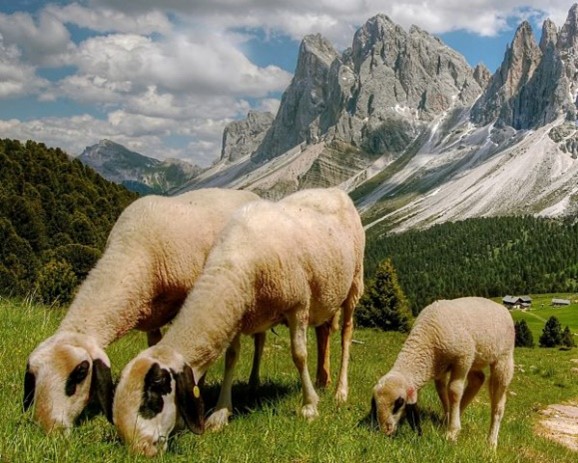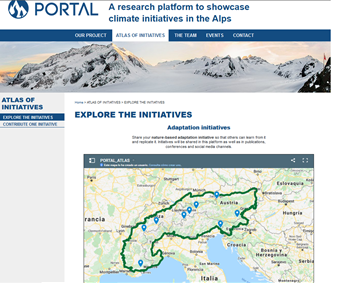The questionnaire is part of the Pathways of Transformation in the Alps (PORTAL) project, hosted by the French National Centre for Scientific Research (CNRS), which seeks to identify transformative nature-based solutions to climate change adaptation in the Alps. Read on for more information on the questionnaire, and on the PORTAL project.
Questionnaire on nature-based adaptation in the Alps
The following questionnaire serves to identify nature-based adaptation initiatives in the Alps. The Alps, and the people that depend on its biodiversity and ecosystem services, are highly sensitive to climate change and therefore are pioneering multiple adaptation actions.
 The questionnaire will take you 10-15 minutes to complete and it will ask you concrete information about any specific nature-based adaptation initiative you know of. The initiatives will be added to an on-line Atlas.
The questionnaire will take you 10-15 minutes to complete and it will ask you concrete information about any specific nature-based adaptation initiative you know of. The initiatives will be added to an on-line Atlas.
Nature-based adaptation initiatives are actions that use nature to adapt to current or future climate. As such they include actions that foster the conservation, restoration, and sustainable management of biodiversity and ecosystems with climate change adaptation aims. Also, they include actions that develop new knowledge, capabilities and values about nature that facilitate adaptation to climate change.
The PORTAL project: Identifying nature-based transformations towards sustainability in the Alps
The questionnaire is part of the Pathways of Transformation in the Alps (PORTAL) project, hosted by the French National Centre for Scientific Research (CNRS), which seeks to identify transformative nature-based solutions to climate change adaptation in the Alps. Funded by the Make Our Planet Great Again French-German initiative, PORTAL will characterize initiatives that aim a transformative adaptation to climate change to better understand what elements drive transformative adaptation to climate change and to allow learning and fostering inspiration within mountain social-ecological systems.

Screenshot of the website of the project and the Atlas of nature-based adaptation initiatives
PORTAL focuses on nature-based adaptation initiatives which include very diverse, small-scale, initiatives like new management strategies, technologies, economic instruments, social organizations, movements or approaches, that, by using and protecting nature, make a substantial contribution towards sustainability in the direct context of climate change. PORTAL will focus on identifying, characterizing and assessing the barriers and enabling factors to increase the impact of these nature-based adaptation initiatives towards climate change adaptation and various Sustainable Development Goals. Various methods including spatial analysis, questionnaires, normative scenario planning, back-casting and knowledge innovation hubs will be combined.
PORTAL targets initiatives in a diversity of social-ecological settings in the Alps, covering eight European countries, where a diversity of these initiatives has been identified. This four-year project, started in February 2020, has already identified the first 100 nature-based adaptation initiatives to climate change in the Alps, and is currently developing an on-line Atlas of nature-based adaptation initiatives. Besides delivering relevant science within the fields of sustainability science and transformative change, PORTAL aims to showcase the front-runners of transformation and support decision-making to up-scale the impact of initiatives and reach sustainability targets.
Twitter: @PORTAL_MOPGA
